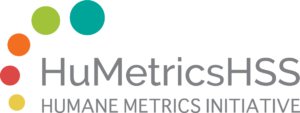VELI Frequently Asked Questions
Can participants from international teams apply?
Yes! We are happy to accept applications from teams based outside of the in the US.
Can a team apply with 5 people? What about 3?
The ideal team size is four. A team of five or more may apply, with the understanding that they may need to cover travel, food, and lodging costs for any team member(s) above four. Teams above four people should list application materials for their additional members in the associated project description PDF. Teams of three, however, are not eligible, for both project viability and attendance reasons. Projects should have a good amount of buy-in from their institution, represented by the team members, and in case of career changes or the inability of a team member to attend, three team members would still be able to benefit from VELI, but two is too few.
Re: the application form, do we fill out the provided PDF?
The provided PDF is only meant to be a guide as you put together your application materials. Please fill out all team information in the form itself, and all project information in a separate PDF you create.
Can a team from different institutions with a shared goal apply? What about a team from a library consortium, or a team that includes participants unaffiliated with an institution?
While the focus of VELI is on changing institutions, cross-institutional and consortium teams are eligible so long as they share a goal and have mechanisms by which they are able to work closely together. The ideal projects reshape the ecosystems of higher education, whether through individual universities, groups of universities, or entities like scholarly societies or networks. As long as your project is focused on larger change, the specifics of your institutional affiliations matter less than the diversity and specific leverage of your team members.
If myself and/or my team have been to a HuMetricsHSS workshop before, should we still apply?
Yes! We strongly believe that even if you have been through some parts of the HuMetricsHSS process, working through it again alongside your specific team members and with a specific goal in mind is valuable, and there will be exercises and experiences at VELI that are entirely new.
If myself and/or my team have been to a previous VELI, can we still apply?
We do accept and will evaluate applications from past attendees of VELI, with a caveat: One of our goals in this work is the cultivation of a community of practice, so we will be prioritizing first-time attendees. A return applicant may have a higher chance of success if the rest of their team has not attended VELI before. However, depending on the overall application pool and the focus of your project it's definitely still possible for applications from returning attendees to still be successful.
What can we expect from the Institute itself?
The format of VELI was inspired by unconferences in general and specifically the Triangle Scholarly Communications Institute (SCI), where the HuMetricsHSS project itself was born. There will be a mix of expert panels, structured exercises, facilitated group sessions, and unstructured time meant to allow your team to work according to your own rhythms and preferences. At the end of the five days, you will be expected to present aspects of your project, including next steps and internal evaluation plans, to your fellow attendees for feedback.
What stage should the project be at to apply?
We’re looking for projects that are aspirational, but attainable, something slightly more advanced than the initial blue-sky thinking. Beyond that, however, projects can be as early or as late in development as you think will be fruitful to work on in the time provided. We find, however, it is better to apply with a project that already exists at some level rather than getting together and creating a project for the purposes of application to the Institute. VELI is intended to provide space for existing projects to become grounded and actionable.
What kinds of projects are most likely to be selected?
We are most interested in projects that aim to question or transform the underlying load-bearing systems of higher education. These include promotion and tenure, budget processes, the ecosystem of institutional measurement (from global rankings and US News to local forms of measurement that shape priorities and funding). We are also interested in projects that tackle how to create genuine shared governance for university leadership.
In general, we would like to encourage a policy of “when in doubt, apply”—we are hoping to support a broad array of projects, and this is a cohort-building exercise. Even if your work doesn’t seem to fit perfectly into what we’ve described, it may turn out to play nicely with the projects of others, and you may be accepted anyway.
